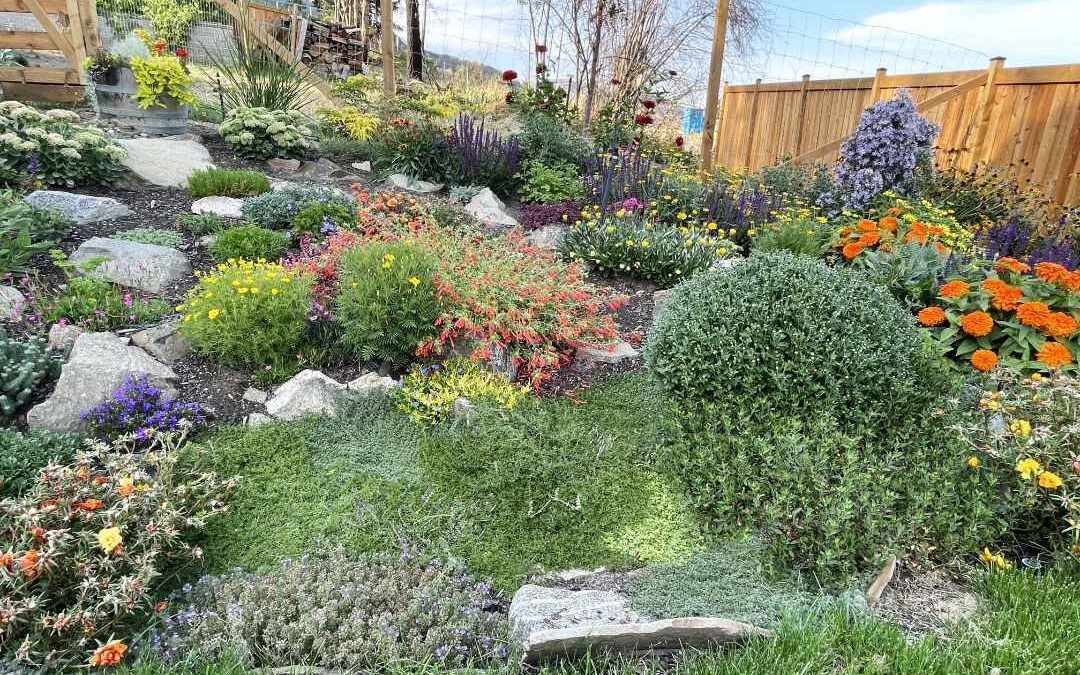John and Judie’s garden
Article by Judie Steeves
From evergreens to ashes
Our area is known for its stately old evergreens and its rock.
Well, we lost our beautiful evergreens and the rest of our landscape in the 2023 wildfire.
When we returned home from evacuation, our house was standing, but the trees were just blackened spires surrounded by ash.
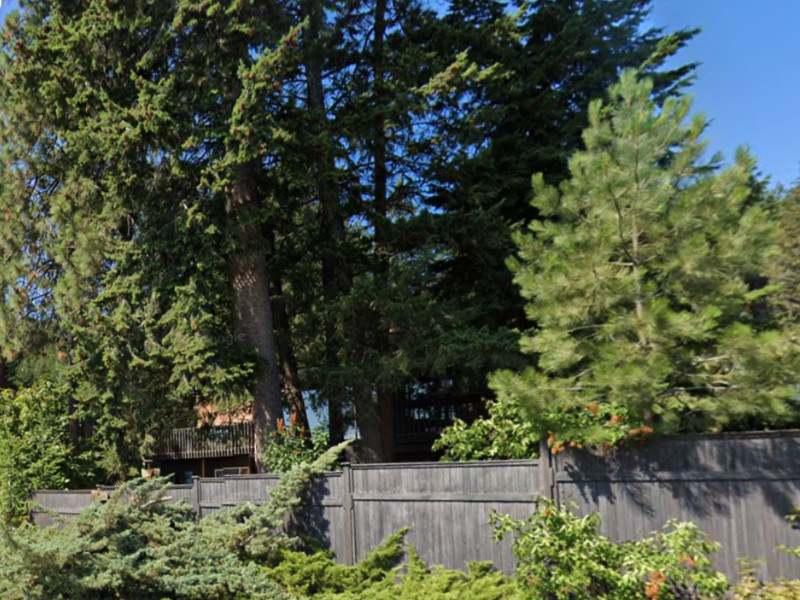
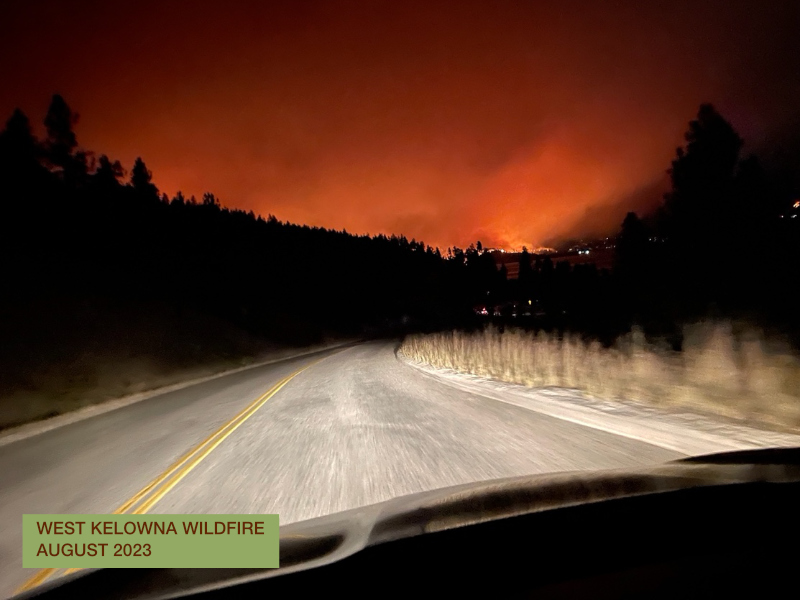
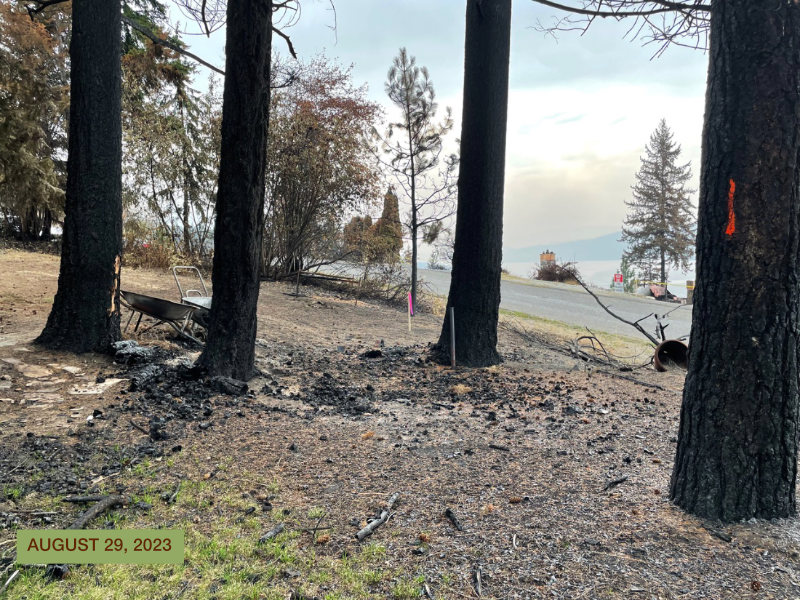
But there was rock
There was nothing much else left, except a few tufts of grass and our cement birdbath.
But, there was the rock. So, we decided to create a rockery.
We had the danger trees felled and bucked; the stumps ground up; we brought in a few loads of soil; and we began collecting rocks.
There were lots around the property, including some we’d never seen before the fire, but we picked up a few that struck our fancy on our trips into the wild and used them to augment what we already had.
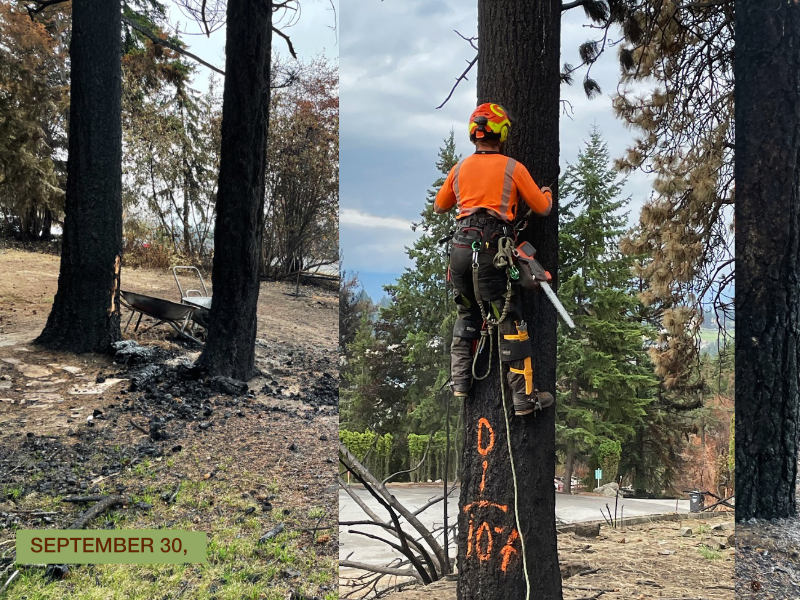
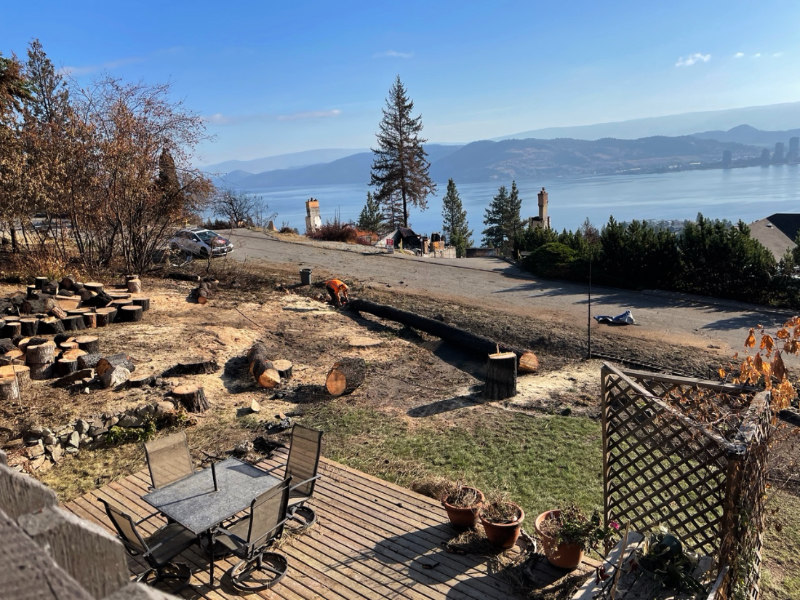
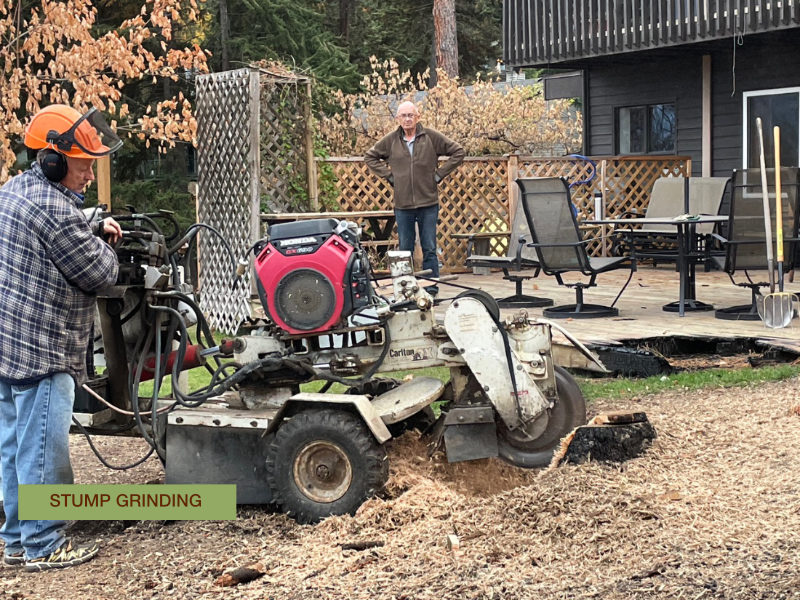
Then, we grew the rockery up from that low spot, settling big rocks in at artistic random as we went.
It was a slow process, but once we got a good collection of big rocks in place, the fun began.
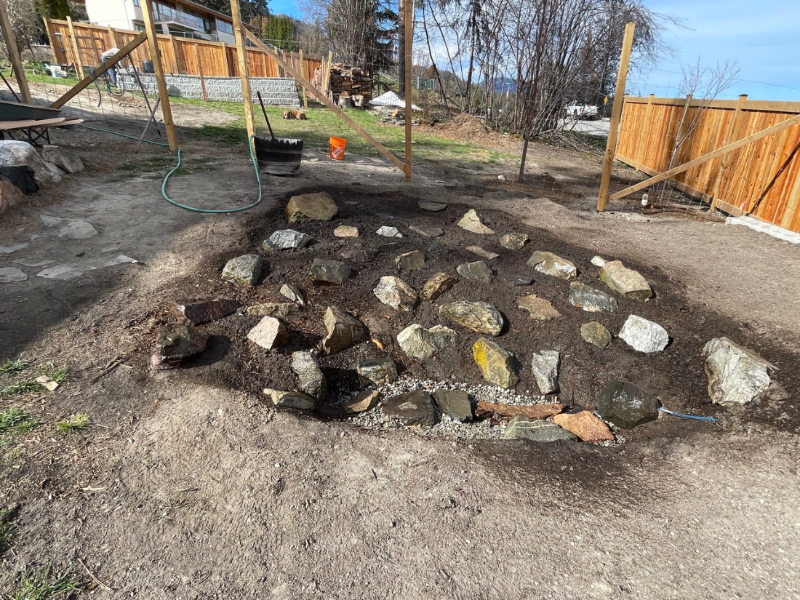
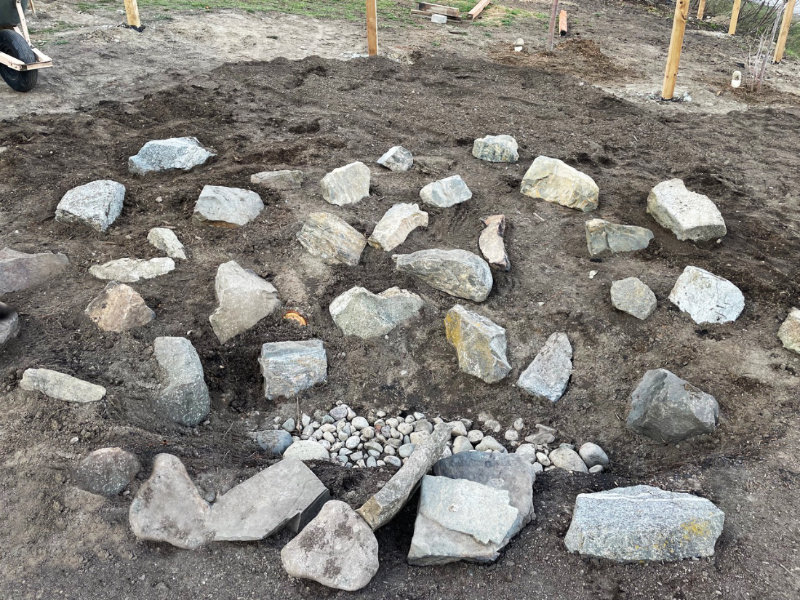
Low water levels in local reservoirs meant we could only water twice a week, so the goal was always to create a colourful, restful garden that would please the eye, but would not break the water bank.
We made extensive use of the OXA plant database.
Surprisingly, a few Sempervivum (Hens and Chicks) survived the wildfire with just a scorching, so we transplanted a few of those survivors to nestle in between some rocks, and then we began a tour of local nurseries, armed with a two-page wish list, culled from perusing the OXA database and my memory banks.
There are lots of miniature perennials that are xeriscape, including dwarf candytuft and gaillardia; prostrate veronica, tiny dianthus and campanulas, and a diverse selection of stonecrops. I even found one named Wildfire!
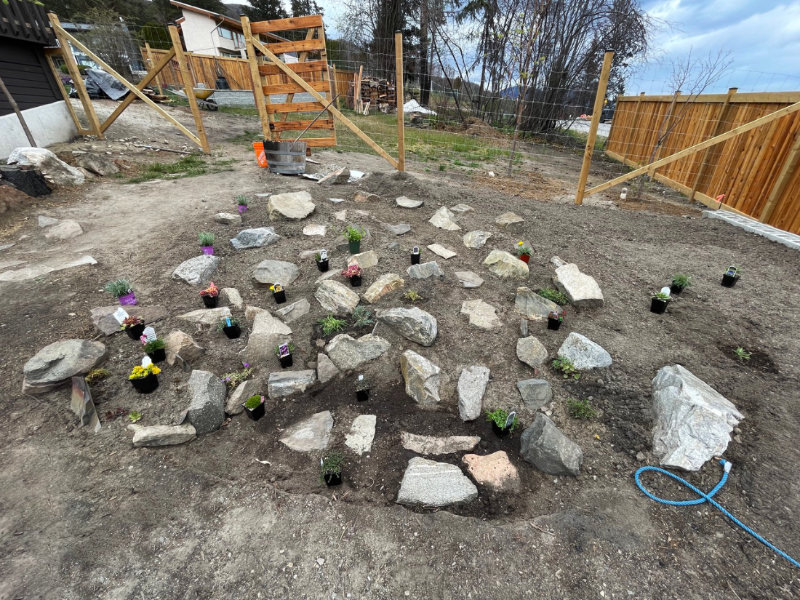
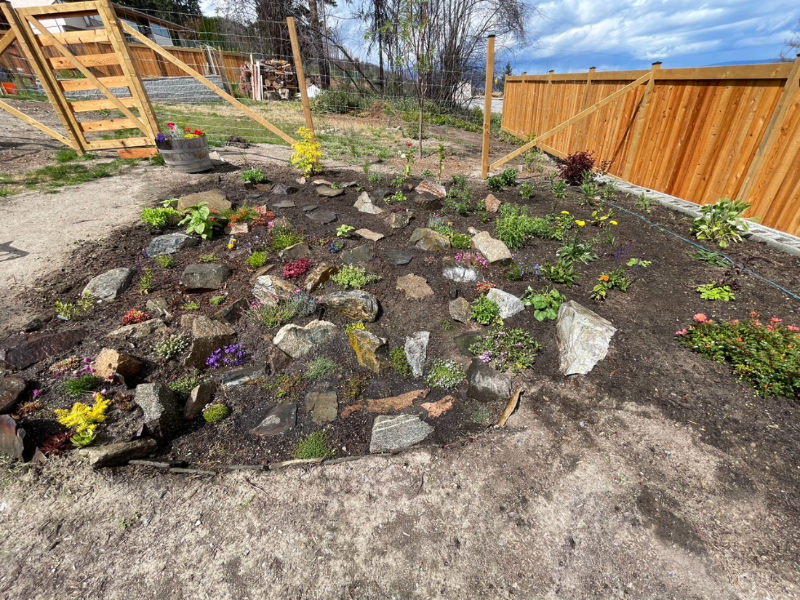
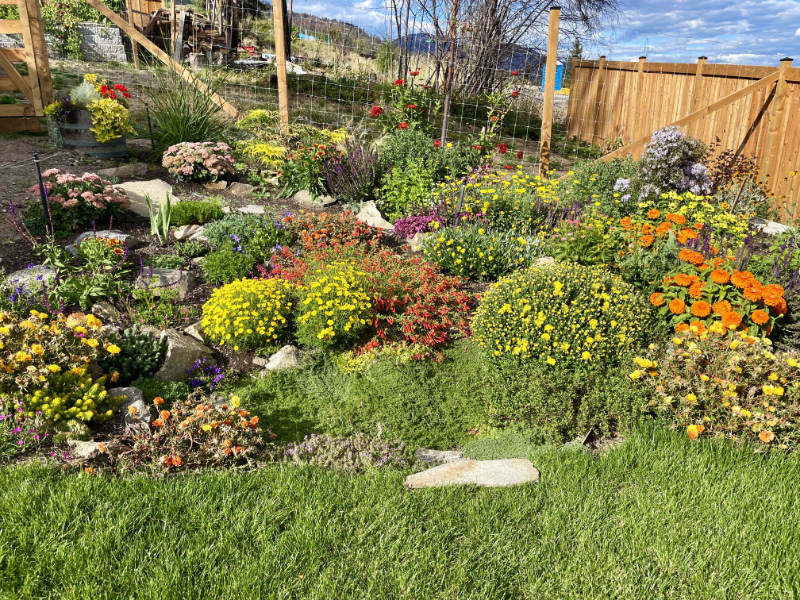
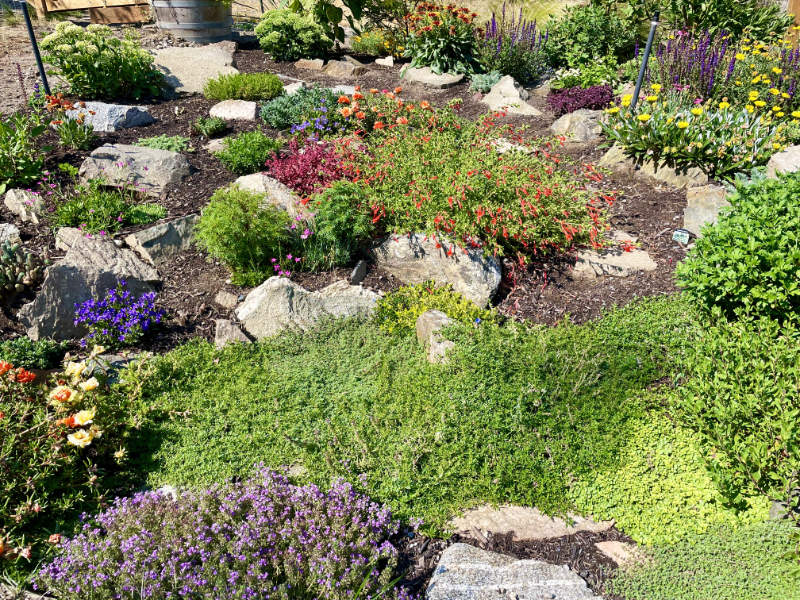
As the dry summer wore on, none of the little plants wilted under the hot sun and the scutelleria re-bloomed as did dianthus and campanula, thrift and lithodora, providing a rich palette of changing colour and spreading over and around the rocks that held pockets of soil for their growing roots.
It will evolve in the coming years. Some choices grew out of their britches and will have to be moved and new selections are being added. Spring bulbs went in this fall so we’re looking forward to a show of mini narcissus, species tulips and scillas next spring.
It’s a completely different landscape than it was before, but my mom and my aunt both had beautiful rockeries and I’ve always wanted one…
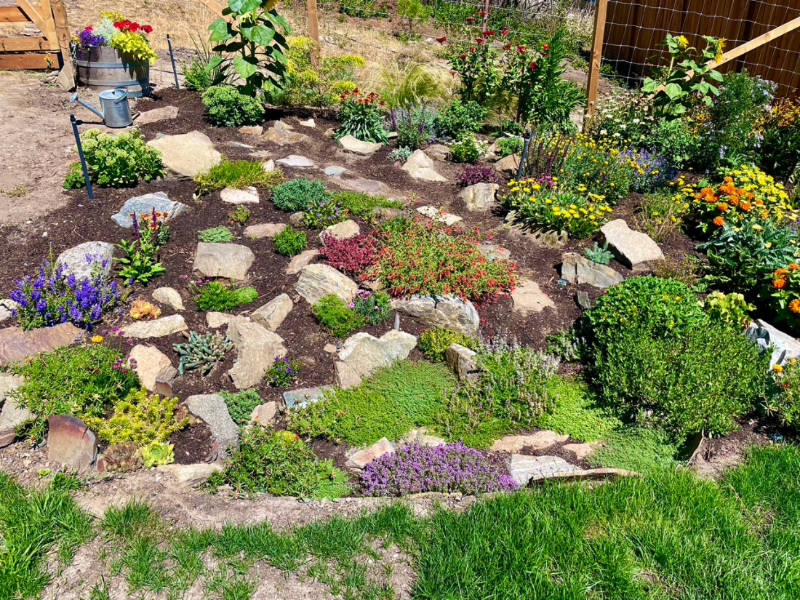
Check our Plant Database for rockery garden ideas as well as information on those mentioned above.
Judie Steeves is Past President of the Okanagan Xeriscape Association.

